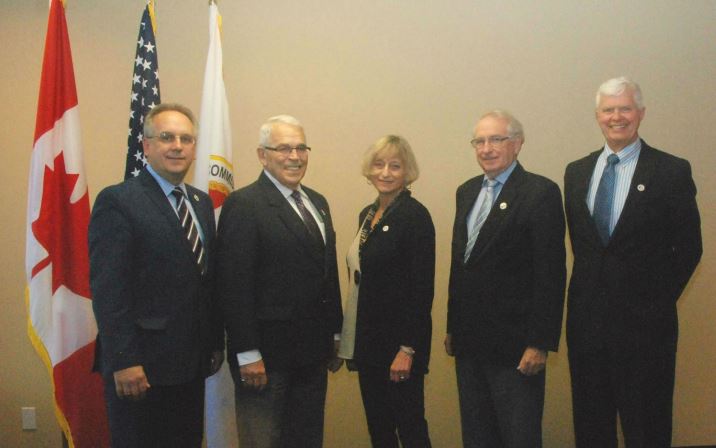In its First Triennial Assessment of Progress under the 2012 Great Lakes Water Quality Agreement, the International Joint Commission (IJC) has called on Canada and the United States to set specific timelines and targets for making critical improvements to wastewater and drinking water infrastructure, reducing nutrient runoff, and eliminating releases of chemicals of mutual concern.
In the report, the IJC tasks governments with increasing infrastructure spending, ending Boil Water Advisories in First Nations and Tribal communities, implementing enforceable watershed management standards in the Lake Erie basin, and achieving zero discharge of toxic chemicals, not to mention clear targets and timelines for all actions.
This may be a tall order, especially given recent political upheaval in the U.S., but Lana Pollack, US co-chair of the IJC, remains confident. “I think that what we do is provide the information and science behind the information, and the costs of not taking action. It’s really up to the public and legislators to bring forward that message.”
IJC Canadian co-chair Gordon Walker is also confident that the work can be done. “There have been strong indications that the [Canadian] government intends to invest in infrastructure,” he said, noting projects like the Randal Reef cleanup in Hamilton, Ontario.
“We’ve found in the last eight years, for sure, that with a president who was a democrat and a congress the was republican, that these issues were bipartisan, and had terrific bipartisan support,” said Pollack.
The report also addresses the issue of clean water for all communities. “Providing 100 percent clean drinking water to everyone, everywhere is the only acceptable situation,” said IJC Commissioner Benoît Bouchard in a press release. This includes crises, such as those faced by Flint, Michigan, as well as First Nations and Tribal communities that have endured long-standing Boil Water Advisories.

Recently, IJC officers visited a First Nations community near Shoal Lake in Manitoba, said Walker. “In that particular case, there happened to be 18 years of boil water advisory in a community of 75 or 100 homes,” he said. “We registered our concern that First Nations on the Canadian side and Tribes on the U.S. side are disadvantaged by their situation, and they need to have particular attention paid to their infrastructure by their respective governments.”
In response to a question about what would happen should the two governments not act to preserve the Great Lakes, Pollack noted the developmental impact on children and the carcinogens that would increase the risk of cancer for citizens of both countries. “It will have an impact, clearly, on public health.” Developmental impact on children, cancer from carcinogens,” said Pollack. “The cost of not doing it, and the cost of cleaning up a few places of historical contamination—it’s enormously costly to the tax payer. And that’s after the loss and impact to public health and economic endeavors.”
In addition to the primary report, the IJC’s assessment of progress comes with a technical appendix of more than 400 pages that details the science behind the IJC’s recommendations and a nearly 300-page summary of public comment from community consultations conducted by the IJC, which Canadian co-chair, Gordon Walker, said was integral in developing the report.
A highlights report is also available through the IJC’s website.









